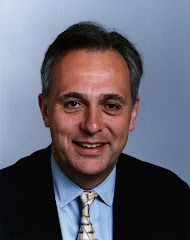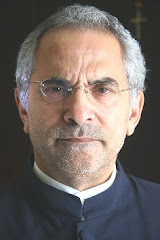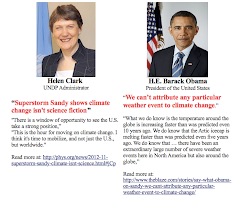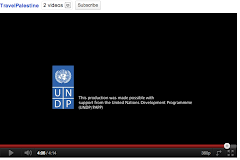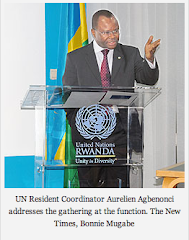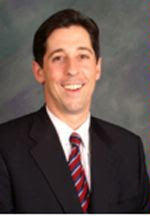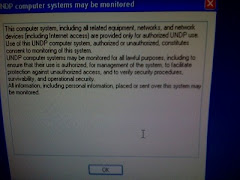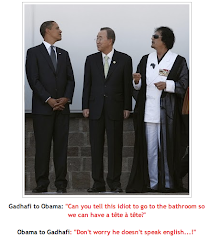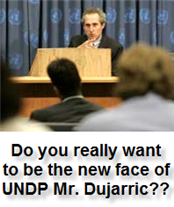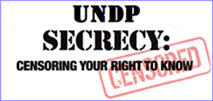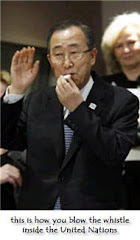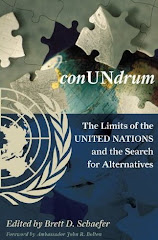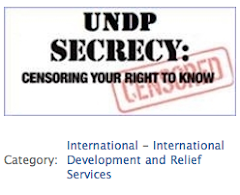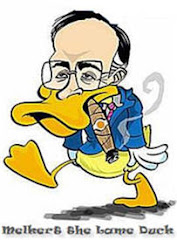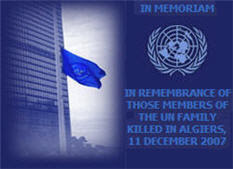Statement by FICSA
Ms. Chairlady and esteemed representatives of the HLCM,
FICSA appreciates the opportunity to address the High-Level Committee on Management under the item “Dialogue with Staff Representatives.”
Today I would like to address three subjects. The first is enhancing staff-management relations and staff representation in the UN system, the second is staff security and I would like to finalize by briefly sharing some of our views on the work carried out by ICSC this year.
Enhancing staff-management relations and staff representation in the UN common system
Earlier this year, FICSA met for the first time with the UN Secretary-General and found the discussion and exchange of views very useful. The value of this meeting only accentuated the regret in the inability to arrange for it earlier. During that meeting, FICSA expressed its appreciation for the remarks in the text version of the Secretary-General’s opening address of the 29th SMCC meeting in support of strengthening staff-management relations. The Federation strongly shared his expressed view that effective, open and meaningful staff management relations were essential to the success of the UN common system and would have a positive impact on the ability of the organizations to serve the Member States and to create a better world. FICSA agreed fully with the statement of the Secretary-General that the UN needed a new mindset.
Since 2000, eight years now, FICSA has been attempting to work with both HLCM and the HR Network to strengthen staff-management relations and staff representation in the UN common system. At the request of HLCM in 2002, FICSA provided information to the Committee and to the Network on the subject of release, facilities and funding provided to its members by their respective administrations. It was clear from that information that few organizations complied fully with the guidelines originally set out by CCAQ in 1982. Nor have organizations fully respected the Framework for Human Resources Management which calls for “communication, participation, transparency and teamwork”. In a number of organizations, the present climate does not enable or empower staff representatives and, even when the executive head may wish to empower staff, the message does not seem to reach other levels of management.
The subject of staff-management relations was continued at the 16th session of the HR Network in July of this year. However, because of its urgency, the discussion was limited to the question of arranging and financing the release of the FICSA President and General Secretary and deciding once and for all whether the organizations still approved of their 1982 agreement to include the option to share the costs for the release to serve FICSA. The Network decided that cost sharing was not a valid option and that each organization should finance the
release of the FICSA President and General Secretary when a staff member from their organization is elected to one of those positions. The Network further agreed that this arrangement should also apply to CCISUA and UNISERV. The implication of this decision is that each organization will need to budget for the eventual release of one of its staff members to serve as an elected officer in a staff federation.
However, all of the other issues that had been identified in a videoconference organized by the Network in 2005 were left unaddressed. The list was already presented to HLCM in 2005 (document CEB/2005/HLCM/30) but worth repeating here:
· Funding/financing
o Particularly financing of participation in meetings by staff representative bodies
· Communication
o Including identifying best medium to communicate on relevant issues
· Training
o Including training in conflict resolution for elected staff representatives
· Headquarters and field
o Including the importance of making a distinction between the role of staff representation at the local and inter-agency level
· Terms of office of staff representatives/bodies
o Including role of staff representatives in various internal processes, such as recruitment, management of grievances
· Release/official time for staff representatives
· Importance of recognizing the particular situation in each organization
· Role of staff representation in the common system
· Ways to enhance staff morale.
At the 67th session of ICSC last July, under the item “Alignment of the budget with strategic plans”, FICSA raised the subject of financing the staff federations’ participation in inter-agency meetings and requested ICSC to include the participation of staff representatives in its own budget. The Commission stated that “it would be more appropriate for any request of that type to be made through the HR Network to the HLCM of CEB”. One of the participants at the 16th Session of the HR Network suggested that FICSA approach ACABQ.
This situation can most politely be described as “being given the run-around”. FICSA has worked in good faith with all of the inter-agency bodies involved and has delivered all of the information that has been requested. However, our requests have been bounced from one body to another without any decisions having been taken. It would seem to us that it is time to get serious, to give credence to the words of the Secretary-General and to work together to improve staff-management relations and staff representation.
Indeed, the implementation of the objectives of the Member States cannot be done without staff, and therefore we cannot continue to ignore the real issues of staff-management relations and staff representation which, if addressed properly, will make organizations more effective.
To that end, FICSA would like to reiterate its request for a working group on enhancing staff-management relations and staff representation within the common system, which will be responsible for addressing the above mentioned list of items that were identified in 2005. We need to come to a common understanding and appreciation of the important role played by staff representatives in our organizations, and to develop ways to facilitate their work, recognize their competencies and contributions and empower all staff to play a larger role in decisions that are made about their working life. Over the next few years, many of the older generation will be leaving service for retirement. If our organizations hope to attract competent, qualified and capable younger people, they will need a new mindset, just as the Secretary-General said. One of the most important tools to recruit and retain a new generation of international civil servants is effective staff-management relations and
staff representation.
Let us not delay any longer. FICSA asks your strong commitment and firm support for a working group to enhance staff-management relations and staff representation.
Security issues
I would now like to present the Federation’s views on security issues. First of all, FICSA would like to acknowledge the work of Sir David Veness, Under-Secretary-General of the UN Department on Safety and Security, and to express the Federation’s regret at his resignation. Needless to remind the Committee that Sir Veness’ predecessor similarly resigned following the Canal Hotel bombing in 2003? When meeting with the Secretary-General, FICSA asked him whether staff should expect that every time that there is a tragedy on the scale of Iraq or Algeria, the Head of DSS would resign. This does not give staff much confidence in the security management system. While such events certainly warrant a closer examination of the way in which security is managed in the UN system, they most importantly provide an opportunity for a close examination of those responsible for managing the system.
The recent report of the Independent Panel on the Safety and Security of UN Personnel and Premises Worldwide mentions that the CEB should provide regular guidance and leadership of the security management system. At the same time, the report also argues for solidifying the role of the Department of Safety and Security and the Under-Secretary-General of DSS should have additional authority over security issues in the UN common system.
FICSA is of the view that the respective roles of the CEB and DSS need to be clarified when it comes to ownership and governance of the UN security management system. There seems to be too many layers and too many players, which not only makes it difficult to get to the root of any problem but also make it difficult to determine accountability. There should be no room for ambiguity when it is a question of saving lives and keeping staff safe.
Paragraph 109 of the Panel’s report cites the “open conflict between DSS executive managers over a number of significant issues”. While dealing with the security of our colleagues, there is no room for such conflicts and this is an area in which all staff should be working together for the same unquestioning goal.
FICSA reminded the Secretary-General that it is not only the internal functioning of the UN security management system that needs to be reformed but that more must also be done to hold Member States accountable for the protective measures provided to UN staff and premises. Member States have the responsibility for ensuring the safety and security of UN staff and operations in their own country. It is the
Member States who mandate the UN and its staff to carry out their work, often in dangerous and insecure locations.
FICSA hopes that the report of the Independent Panel on Safety and Security of UN Personnel and Premises Worldwide will be followed by changes which will lead the UN common system to a more secure workplace all over the world, and to that end FICSA welcomes the establishment of the Steering Committee.
ICSC 2008
I would like to close by making a few remarks about the decisions, recommendations and functioning of the ICSC this past year. The Federation’s first comment concerns the global staff survey that was carried out by ICSC alone to help in assessing the effectiveness and impact of recruitment and retention measures at difficult duty stations. Based on the data collected by ICSC, the Commission concluded that, although United Nations organizations did not seem to have significant recruitment or retention problems in general, there appeared to be problems in certain occupational groups and areas of specialization. In addition, there may be problems in the quality of staff hired in almost 25 per cent of the cases. The projections of the future supply and composition of the global labour market indicate that the general situation may well get worse, and that the specific issue of specialized talent will only get more acute. It would therefore be prudent for the organizations of the United Nations common system, in collaboration with the staff representatives, to begin taking strategic steps to mitigate these trends, in addition to addressing the immediate problems.
While the Federation welcomes the attention to staff views on recruitment and retention, it is not yet convinced that the response rate to the survey was high enough to conclude that the UN organizations do not seem to have significant recruitment and retention problems. In fact, FICSA is of the opinion that the analysis of the survey results might give the wrong message to the Member States and that, as the
Commission states in its Annual Report, it would be best to exercise some caution in drawing final conclusions from the initial analysis. FICSA would like to ask the organizations to bear this caution in mind in their discussions on this subject with Member States representatives, and would like to reiterate its availability to contribute to the development of staff surveys in the areas of competence of FICSA.
Our second comment is more general and concerns the overall atmosphere at the Commission’s sessions in 2008. The summer session of the Commission was particularly tough, due primarily to two contentious issues: the review of the education grant methodology and the review of the children’s and secondary dependant’s allowances. FICSA was pleased with the outcome of the session concerning the review of the education grant methodology, but regretted the Commission’s decision not to grant a 100 per cent transitional measure to compensate for the new lower rates for the dependency allowances in several duty stations. The discussions on the education grant led FICSA to question whether the Commission has the best interests of the organizations and the staff at heart.
On a more positive note, FICSA is pleased to report that it worked closely with the representatives of the HR Network, especially on the issue of the review of the education grant methodology. We hope that this return to a more collegial working relationship with the HR Network will continue and will be strengthened even in issues in which the views differ.
This concludes the Federation’s remarks, which we hope will provide ample substance for the dialogue with HLCM and I would like to thank you for your attention.














